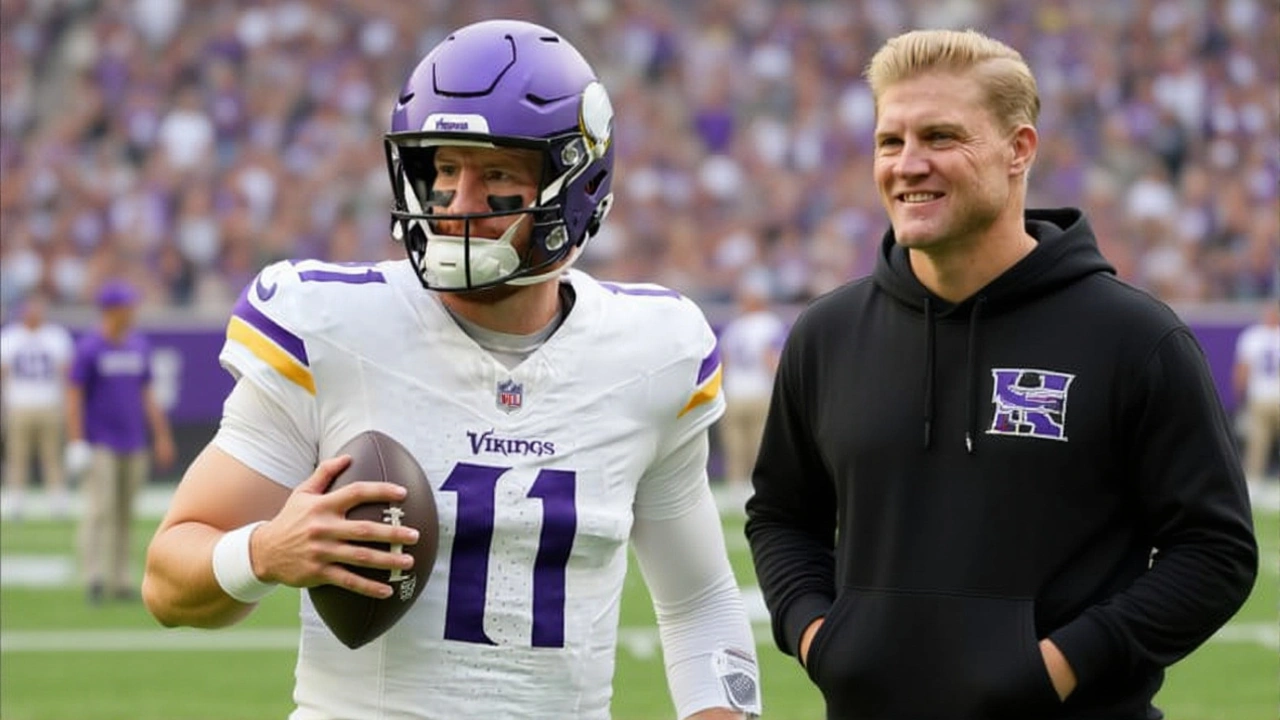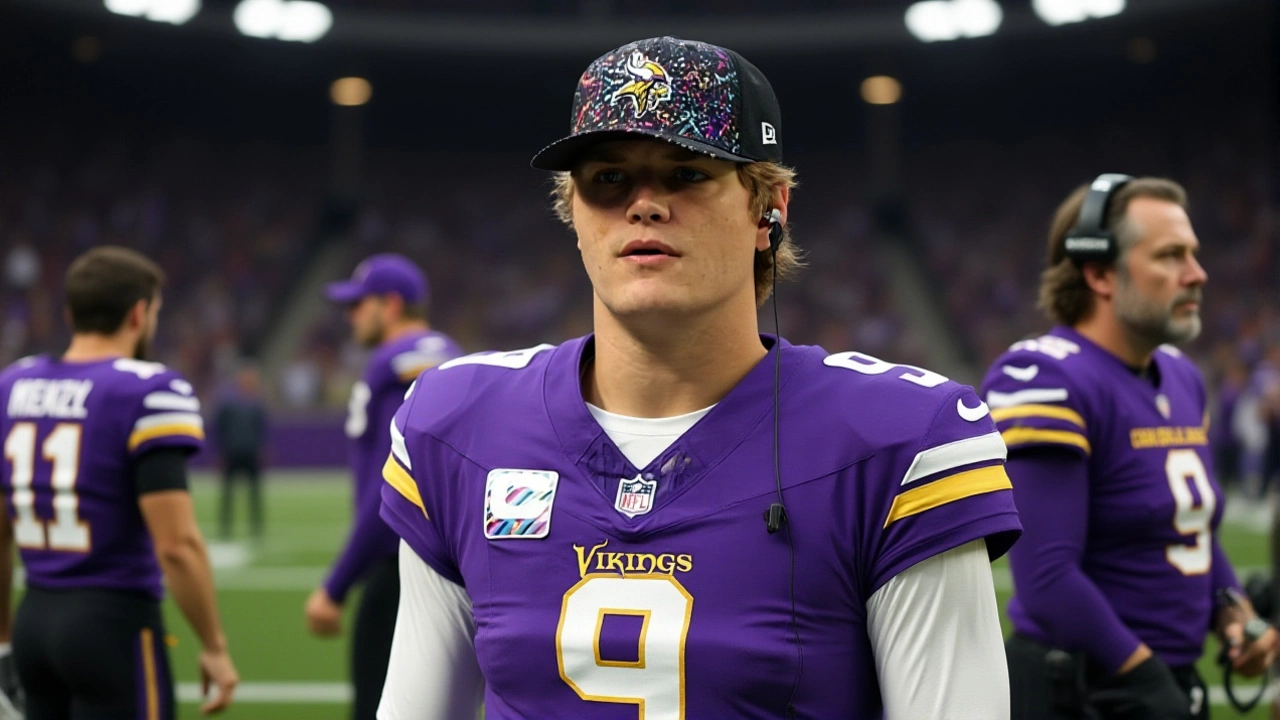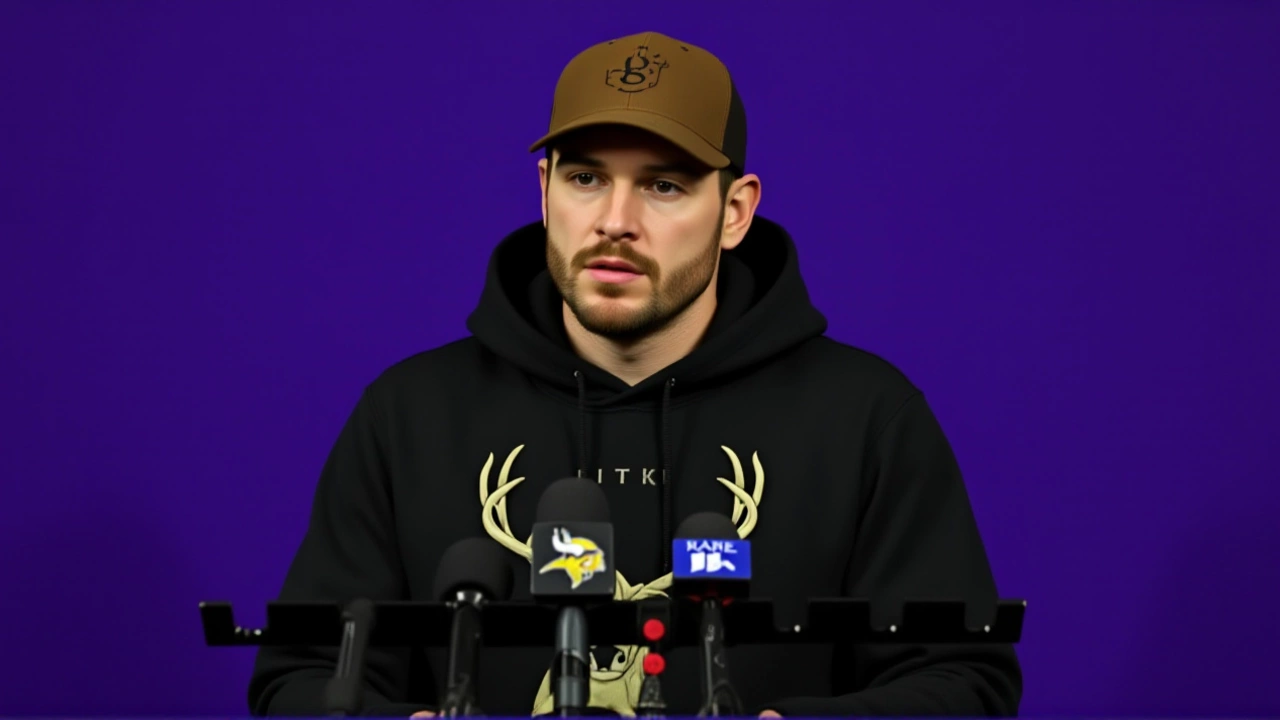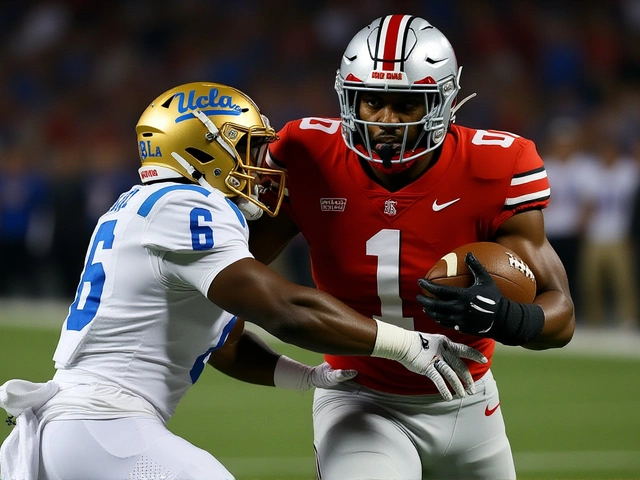When Carson Wentz, quarterback of the Minnesota Vikings tried to push through a nagging shoulder injury on Thursday night, the result was a 37‑10 drubbing at SoFi Stadium in Inglewood, California. The Vikings, sitting at an even 4‑4 after the loss, saw their playoff hopes take a hit, while the Los Angeles Chargers climbed to 5‑3, thanks to a stellar showing from Justin Herbert. Here’s why the game mattered and what it could mean for both franchises moving forward.
Game Overview: A One‑Sided Affair
The Chargers came out firing on all cylinders. Herbert, the 27‑year‑old quarterback from Eugene, Oregon, tossed for 287 yards and three touchdowns, threading the needle on a 78‑yard strike to Keenan Allen late in the third quarter. The Vikings, on the other hand, managed just 144 passing yards, one touchdown and an interception. Their lone score came when Wentz connected with rookie wideout Jordan Addison for a four‑yard touchdown early in the first quarter. Aside from that, the Vikings’ offense stalled at a meager 227 total yards, while the Chargers’ defense, ranked eighth in points allowed entering Week 8, forced 413 yards against Minnesota.
Wentz’s Injury and Performance
Wentz, a 2016 second‑overall pick out of North Dakota State, entered the game already nursing a shoulder problem. According to MPR News reporter Alec Hamilton, the veteran quarterback “aggravated his existing shoulder injury on nearly every snap.” Still, he completed 15 of 27 passes and didn’t hesitate to throw the ball into traffic. In the post‑game press conference, Wentz told ESPN’s Sal Paolantonio, "Pain is pain, you know. I felt like I could still help this team…" He added that he never considered leaving the field, despite the throbbing discomfort. The decision to stay in the game was as much about leadership as it was about personal pride; Wentz wanted to give his teammates something to rally around, even if the scoreboard told a different story.
Herbert’s Dominance and Chargers’ Game Plan
Jim Harbaugh’s Chargers executed a balanced attack. While the aerial barrage accounted for most of the points, the ground game contributed 126 rushing yards, highlighted by a 34‑yard sprint from Austin Ekeler that set up the second touchdown. Harbaugh’s play‑calling emphasized quick, high‑percentage throws to neutralize any pass rush that might have intensified Wentz’s pain. “We knew the Vikings were dealing with an injury, but we still prepared to exploit every mismatch,” Harbaugh said in a post‑game interview. The strategic focus on tempo kept the Vikings’ defense on its heels, and the result was a push‑off‑the‑ground performance that left Minnesota scrambling.

Coaching Perspectives: O’Connell vs. Harbaugh
Vikings head coach Kevin O'Connell, a former Rams offensive coordinator, faced a dilemma. He could have pulled Wentz early to protect his future health, but doing so would have meant putting a rookie quarterback under pressure in a hostile environment. O'Connell later admitted, “We trusted Carson’s experience. The plan was to keep him in, but we also had to consider his long‑term health.” In contrast, Harbaugh, now 62, praised his defense’s discipline. “Our secondary stayed disciplined, and we forced them into third‑down junk,” he noted. The differing approaches underscored a broader league debate about playing through injuries versus protecting assets for the long haul.
Implications for the Vikings: Playoff Hopes on Thin Ice
The loss dropped Minnesota to second place in the NFC North, trailing the Green Bay Packers by a single game. With a 4‑4 record, the Vikings must win at least three of their remaining five games to stay in the wild‑card conversation. The shoulder issue could become a bigger story if it lingers into the next matchup against the Seattle Seahawks at U.S. Bank Stadium on November 2. Vikings medical staff are expected to run an MRI within the next 48 hours, and many analysts predict a possible week‑off for Wentz if the injury worsens.

Looking Ahead: What’s Next for Both Teams?
For the Chargers, the win keeps them in the chase for the AFC West crown, still a game behind the Kansas City Chiefs. Their next test comes on the road against the Denver Broncos, a contest that could further solidify their position as a legitimate playoff contender.
Meanwhile, the Vikings will host the Seahawks, a division rival also sitting at 4‑4. The Seahawks — led by Russell Wilson’s veteran poise — are expected to bring a high‑octane offense that could expose Minnesota’s defensive frailties even more. If Wentz’s shoulder holds up, the Vikings’ chances improve; if not, the backup might get an unexpected start, a scenario that will surely shake up the NFC North race.
Background: The 2025 Season So Far
Both teams entered Week 8 with lofty expectations. The Vikings, under the Wilf family ownership—Zygi Wilf (Chairman), Mark Wilf (President) and Leonard Wilf (Vice‑Chairman)—signed Wentz in 2024 hoping to revive a stagnant offense. O'Connell, hired after the 2023 season, promised a modern, pass‑heavy scheme, yet injuries have hampered those plans.
The Chargers, owned by the Spanos family (Dean Spanos as Chairman), have been looking to finally break through the AFC West barrier that has long been dominated by the Chiefs. Harbaugh’s return to the NFL after a successful stint at Michigan has brought a swaggering confidence to the squad, evident in their balanced offensive statistics this season.
Frequently Asked Questions
How does Carson Wentz’s injury affect the Vikings’ playoff chances?
If the shoulder injury sidelines Wentz for more than a week, Minnesota could be forced to start a rookie or a backup, which would likely diminish their offensive production. With a 4‑4 record, losing a starting quarterback could drop them out of the wild‑card race, especially in a tightly contested NFC North.
What were the key statistical differences between the two teams?
The Chargers amassed 413 total yards (287 passing, 126 rushing) compared with the Vikings’ 227 yards. Defensively, the Chargers allowed just 19.3 points per game entering Week 8, while Minnesota surrendered 22.8 points on average.
Will Jim Harbaugh stay on the Chargers after the season?
Harbaugh has a contract through 2027 with a performance clause. Given the Chargers’ upward trajectory and their position in the AFC West, it’s likely he’ll remain unless a major playoff disappointment prompts the organization to reconsider.
Who is the Vikings’ next big opponent, and why does it matter?
Minnesota faces the Seattle Seahawks on November 2 at U.S. Bank Stadium. The Seahawks are also 4‑4, making the game a de facto division showdown that could decide who leads the NFC North.
What does this loss mean for the Chargers’ standing in the AFC West?
The victory moves Los Angeles to 5‑3, keeping them within one game of the Kansas City Chiefs. A win against Denver next week would put them in a prime position to challenge for the division title.





Tulis komentar